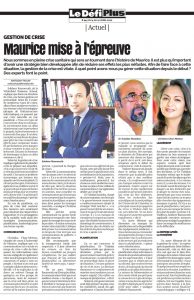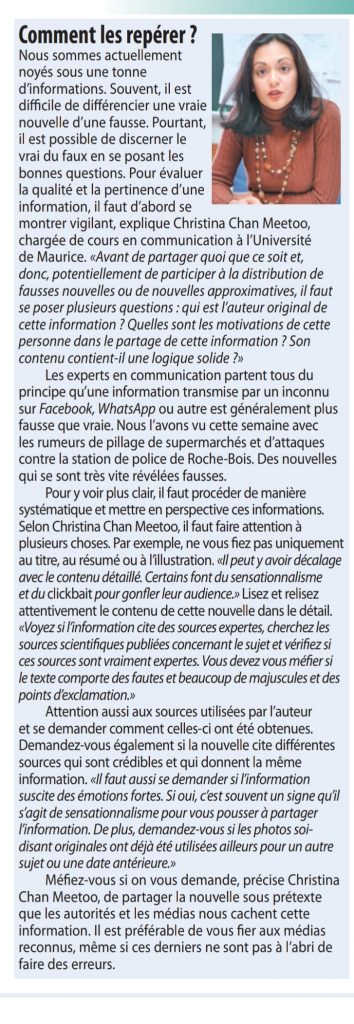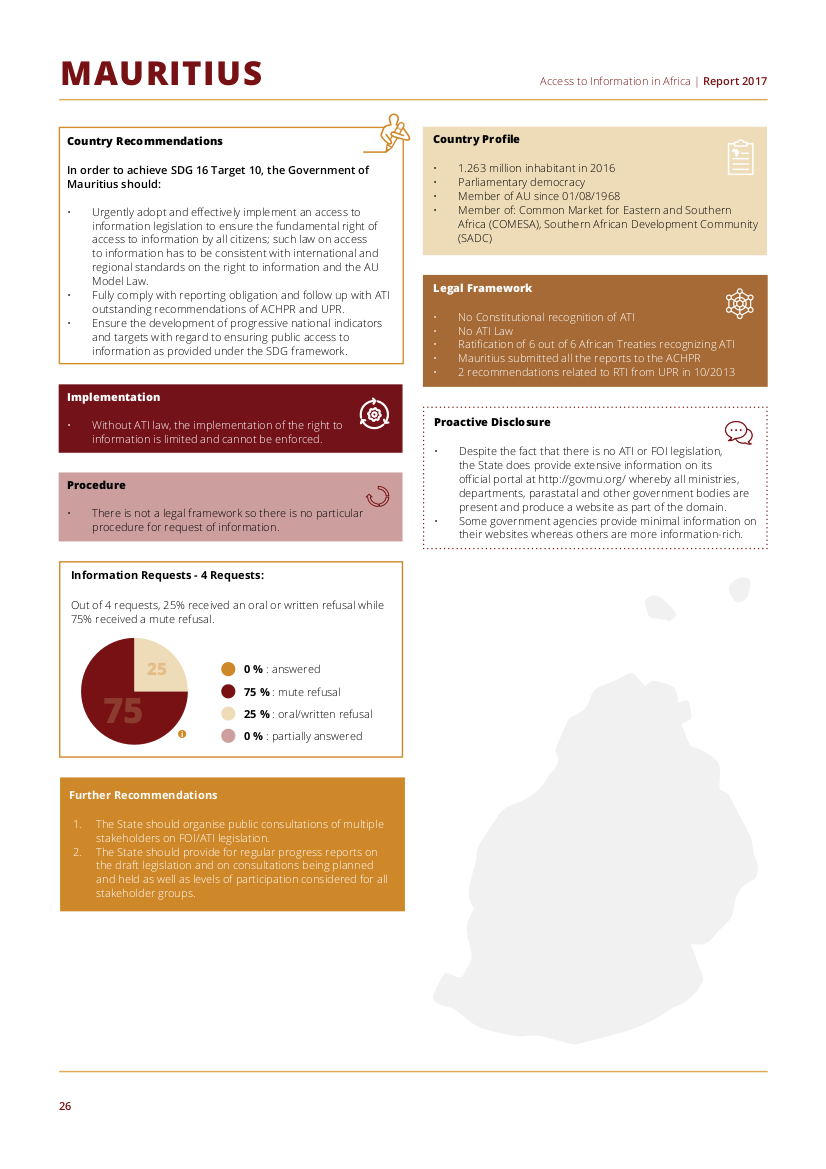 Article paru dans Le Défi Plus le 4 avril 2020
Article paru dans Le Défi Plus le 4 avril 2020
Voici les questions de la journaliste et les réponses originales que j’ai données.
Pourquoi la communication est-elle importante dans la gestion de crise?
Elle est cruciale en temps de crise afin de faire passer les informations sans aucune ambiguïté et rapidement entre tous les groupes d’acteurs concernés et aussi à tout un peuple surtout si on veut que ce peuple collabore pleinement. Il ne s’agit plus ici de dorer ou redorer l’image de quelqu’un ou d’un groupe de personnes mais de s’assurer que la crise soit bien gérée. La communication doit être un outil et pas une fin en soi. Un outil au service de la nation dans le cas présent.
Dans quelle mesure Maurice a-t-elle pu gérer cela correctement?
En ce qu’il s’agit de la communication vers la masse: elle a été en dents de scie avec des ‘ups and downs’. Il y a eu de très bonnes séances de communication et des moins bonnes. Mais, j’ai le devoir de dire que, dans la situation actuelle de crise extrême où nous sommes arrivés, tout conseiller en communication qui n’écoute pas ou ne comprend pas les experts, surtout les scientifiques, ne pourra donc pas faire passer les messages les plus importants. Un communicant n’a qu’une seule fonction en temps de crise: faire passer le message des experts de façon claire. Il ne faut surtout pas tomber dans la facilité.
L’éthique doit primer. La communication en temps de crise n’est PAS une communication de paillette.
Quelles sont les recommandations d’amélioration en ce moment de crise?
Ecouter les experts (médecins, scientifiques, informaticiens, etc.) et ceux qui ont une vue d’ensemble.
Pratiquer la transparence totale, admettre les erreurs, en tirer les leçons, consolider ses propres compétences.
Ne pas oublier que chacune de nos actions d’aujourd’hui vont déterminer l’avenir de notre pays.



